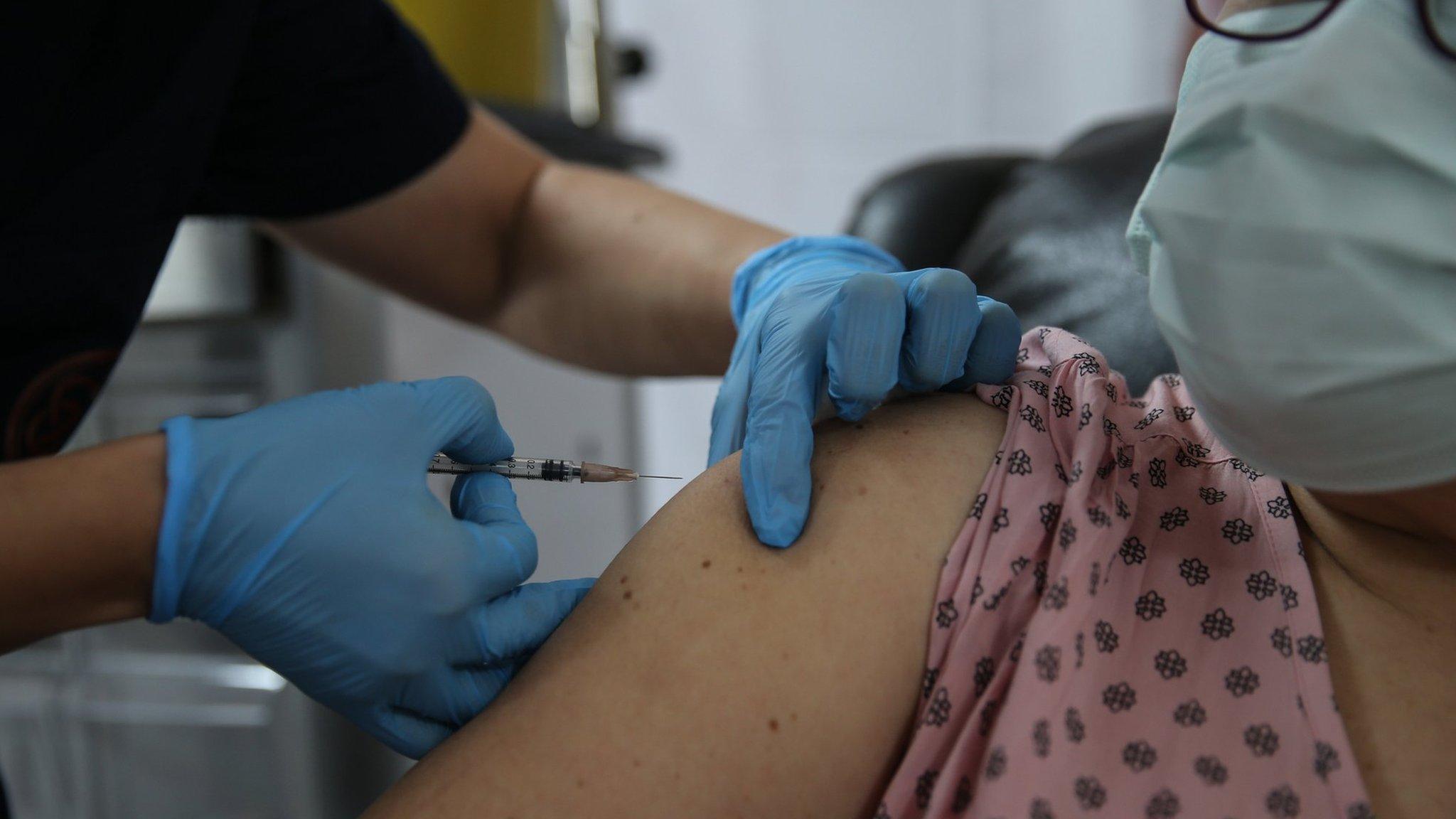Covid: First Americans 'could get vaccine in December'
- Published
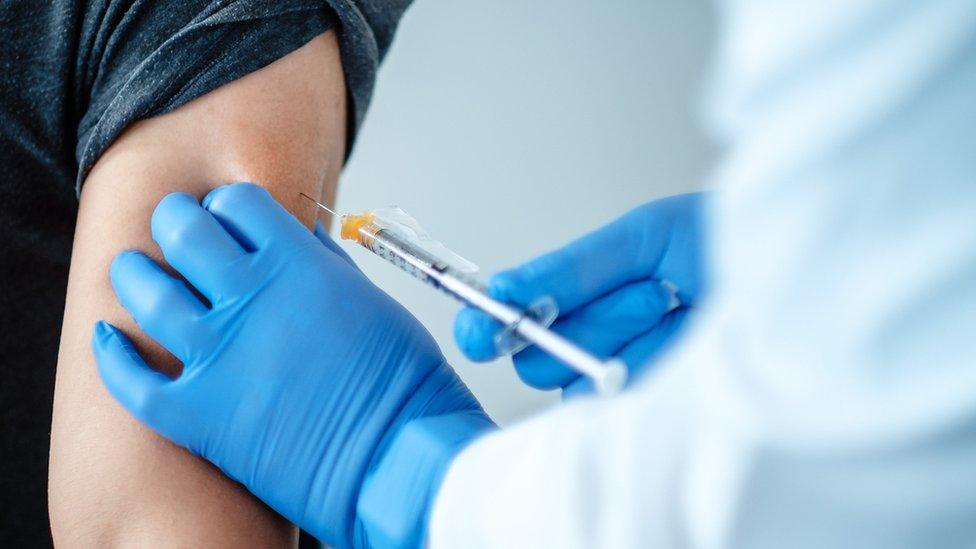
Pfizer has applied for emergency authorisation for its vaccine in the US
The first Americans to receive a Covid-19 vaccine could get it as soon as 11 December, according to the head of the US coronavirus vaccine programme.
Dr Moncef Slaoui told US network CNN the plan was to "ship vaccines to the immunisation sites within 24 hours" of a vaccine being approved.
The comments come amid a surge in coronavirus cases across the country.
The US has recorded more than 12m cases and 255,000 deaths, according to data compiled by Johns Hopkins University.
These are the highest tolls registered anywhere in the world.
American pharmaceutical company Pfizer and its partner BioNTech submitted an application on Friday for emergency authorisation in the US of their Covid-19 vaccine.
The vaccine, which requires two doses, has been shown by tests to be 95% effective. Pfizer hopes to produce up to 50 million doses by the end of the year.
A Food and Drug Administration (FDA) vaccine advisory committee is set to meet on 10 December to discuss whether to authorise the vaccine.
Dr Slaoui told CNN it could be rolled out "maybe on day two after approval".
The vaccine is set to be distributed based on each state's population. Dr Slaoui said individual states will be responsible for deciding who gets the vaccine first, with the recommendation that priority be given to those most at risk, like healthcare workers and the elderly.
Pharmaceutical company Moderna has also reported that its vaccine is nearly 95% effective, according to test data. The company is expected to seek approval for the vaccine in the coming weeks.
Dr Slaoui said that with the level of efficacy shown in the vaccines, the US could achieve "true herd immunity" in May, with 70% of the population vaccinated.
How effective is getting a Covid test before you travel for Thanksgiving?
But he added: "I really hope and look forward to seeing that the level of negative perception of the vaccine decreases and people's acceptance increases. That is going to be critical to help us. Most people need to be immunised before we can go back to a normal life."
Dr Anthony Fauci, the US's top infectious disease expert, told BBC partner CBS News that the US could reach herd immunity against Covid-19 "reasonably quickly" next year if enough Americans are vaccinated.
Although the full trial data has yet to be published, the companies involved say there have been no serious safety concerns.
It's still unclear how long protection from the vaccine lasts and if it stops people transmitting the virus.
What else is happening with Covid in the US?
The US Centers for Disease Control and Prevention (CDC) has warned that coronavirus cases are "rapidly rising" across the country.
The daily death toll has reached its highest level since May.
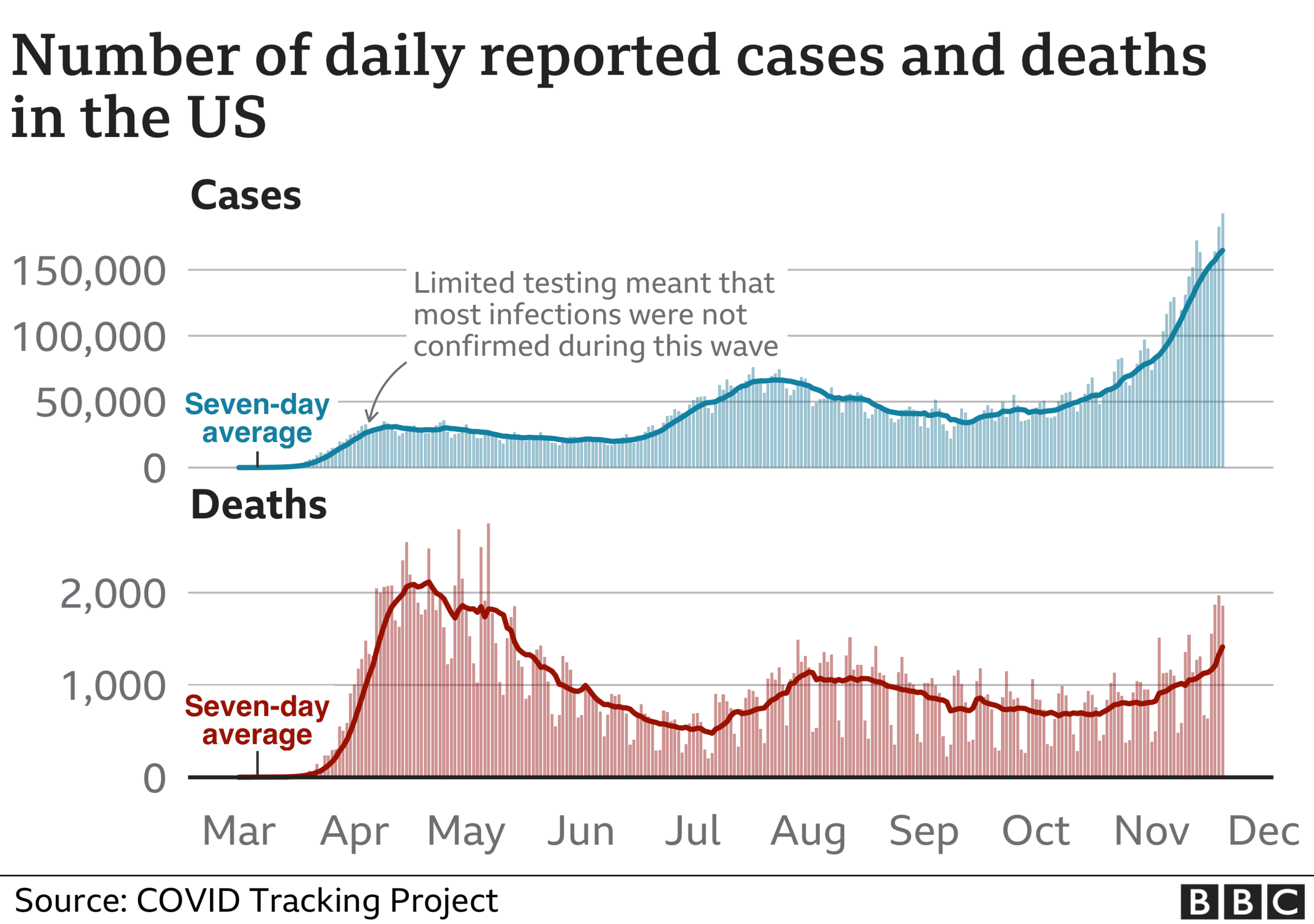
Several states have imposed new mask mandates and restrictions to try to combat the rise, and in Texas the National Guard has been deployed in the city of El Paso to help with morgue operations amid a surge in coronavirus deaths.
California has begun a night-time curfew, in an attempt to curb the spread of the virus. It reported a total of one million cases last week, making it the second state to do so after Texas.
The new daily curfew, from 22:00 local time on Saturday (06:00 GMT Sunday) until 05:00, will carry on until 21 December, with a possible extension if needed, according to authorities.
Restaurants are able to offer takeout and delivery outside these hours.
Other places, including New York City, are also operating a night-time curfew. Bars, restaurants and gyms are allowed to open until 22:00, but schools have been closed.
The CDC has urged Americans to avoid travelling for the Thanksgiving holiday on 26 November to prevent increased transmissions.
Thanksgiving typically heralds the busiest week for travel in the US. Last year, an estimated 26 million people passed through the country's airports in the week surrounding the holiday.
President Donald Trump and President-elect Joe Biden have both said they are against imposing a national lockdown, and favour letting states come up with their own rules.

EASY STEPS: How to keep safe
HOPE AND LOSS: Your coronavirus stories
VIDEO: The 20-second hand wash

- Published12 December 2020
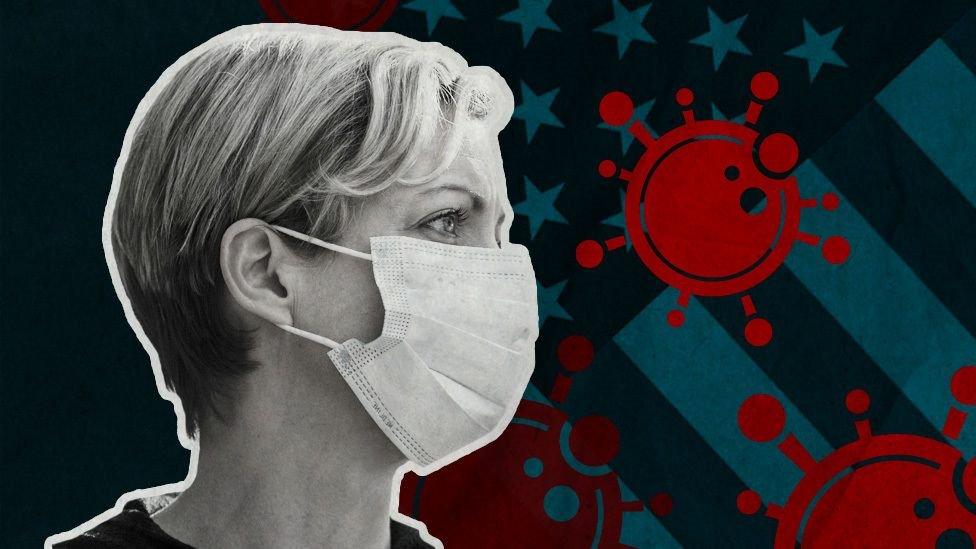
- Published17 November 2020
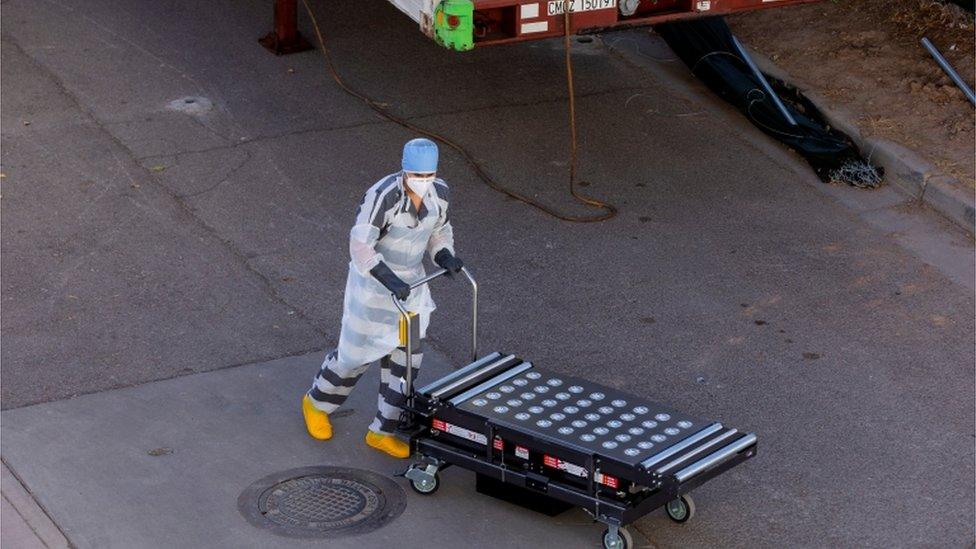
- Published22 November 2020
